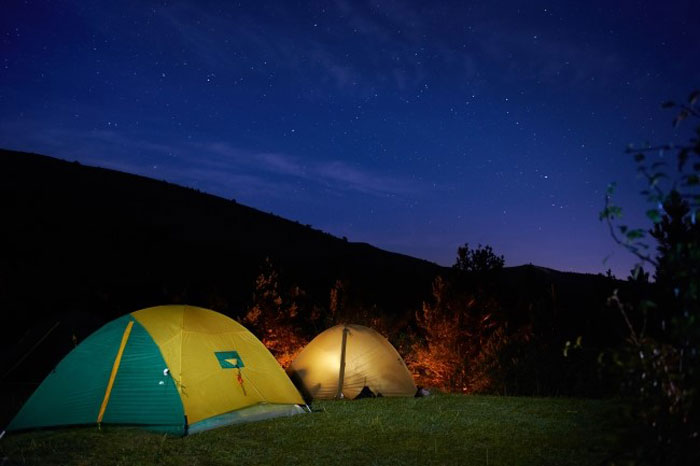Posts on this site may contain affiliate links. This means that whenever you buy or book something through those links, we may earn a small commission – without any extra cost to you at all! You can read more about our Terms of Use / Disclosure here.
As we buzz our way through the concrete jungle that are our lives, most of us who are health-conscious make an extra effort to avoid the traps of the “microwave” era. We get our broccolis and the whatnots, we glance at our slick fitness trackers and, if we’re lucky to see all the right numbers, we bask in the feeling of living healthy.
Then, we lay down our heads onto that new pillow Steve from accounting praised so much and convinced us to get. The alarm clock is set to 7 AM and it’s all as planned. We drift off to a serene slumber.

It was a good day.
But was it really?
Let’s revisit the 7 AM setting on that alarm clock. It gives us solid 7-8 hours of sleep and everything we ever read says it’s the sweet spot.
There is, however, a minor issue with the 8 hours being just right – it’s not.
It’s a myth and dangerous one-size-fits-all approach.
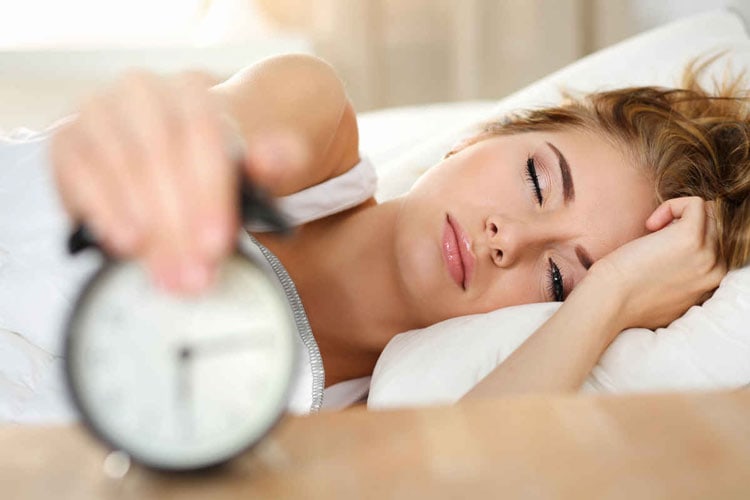
Contents
Proper Sleep Goes Way Beyond the Hours
Without getting into the nitty-gritty of it all, which is beyond the scope of this article and can be a topic on its own, let’s be concise and boil it down to a few takeaways.
A good night’s sleep is not just about the hours you spend sleeping; it’s about getting the right balance of sleep phases and sleeping in full cycles. If you’re getting your 8 hours and still rely on 5 mugs of coffee to get you through the day, it’s likely that your problem is not the nagging boss but your sleep habits.
Sleep Is Paramount When Facing the Elements
What we talked about above might not be a big deal if the day ahead will be 9 hours of sitting in a Herman Miller chair making charts and going home to lunge in your Lazy Boy watching “Workaholics.”
But if your plan for the day is to conquer a 5-mile trail with a 2000-feet elevation gain, things get messy.
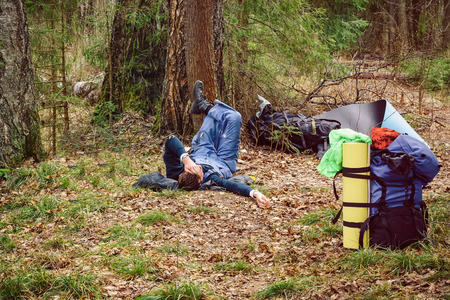
Why We Don’t Talk About Sleep
Two reasons – we don’t fully understand it, and it’s not as sexy to talk about as that new sleeping pad with a Triangular Core Matrix that just hit the market.
Well, today, we’re doing just that, addressing a commonly overlooked and the unsexy topic of sleep.
Let’s dig in…
Doing the hours math
The Problem
In the intro above, we mentioned the 8-hour myth. Here’s an overview of what’s wrong with the approach and what you should look at instead.
- Ideally, a full night’s sleep consists of 4-5 sleep cycles, each of them 90-110 minutes long. There’s nothing worse than waking up in the middle of a cycle and that’s exactly what rigid sleep hour habits do.
- We all have different sleep cycle lengths: yet we plan our sleep sticking to the norms set by studies from the 70s and 80s.
- Not getting enough “Deep Sleep” – this phase makes for about 15-20 % of the time we spend sleeping and it’s when all the body-repair magic happens…tooth to nail, bone to muscle. That’s what makes it so important for a hiker.
The Solution
Get to know your body’s sleep cycles. It‘s not as complicated as it sounds, it can be as simple as getting a sleep tracker and looking at the numbers.
Use the numbers to plan getting 4-5 full cycles. Do it in the comfort of your home so that you have a solid plan once you hit the trail.
Choosing Your Sleeping Gear
The Problem
Another common mistake hikers and adventurers make is the choice of sleeping gear (like air mattress and sleeping bags).
Choosing the best air mattress/sleeping pad
If you’re going online or to your local store to choose an air mattress and you go with “the yellow one because they’re all the same,” you’re making a serious mistake.
The Solution
Take your time and do the research, read reviews of the air mattresses to find one that’s the best fit for you. Who’s better to listen to than the people who used the air mattress and shared their experience in the reviews of the airbeds?
If that’s not cutting it and your circumstances are very specific, do some more “digging”. There are website out there that actually test and review the air mattresses and sleeping pads.
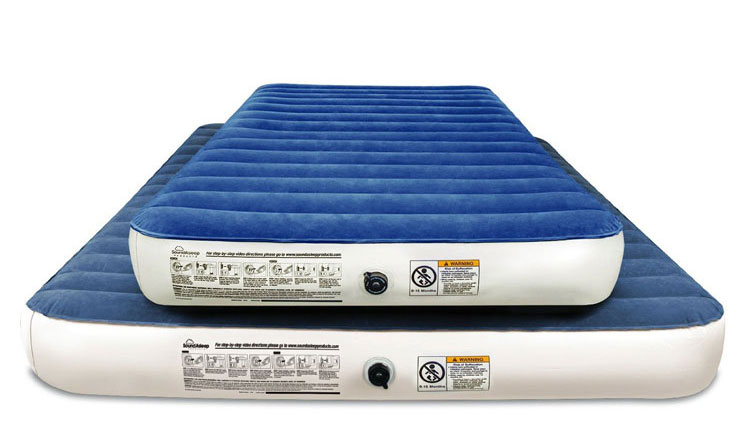
Email them, explain your needs and see if they if they can share any valuable input about what would be the best air mattress for you (a good example of a site that deals with all things air mattresses is TheSleepStudies.com).
The Pesky Buzzards
The Problem
You’re taking that antique Washburn guitar that granddad gave you out of the case and impressing everyone by hitting those high notes of Hotel California almost as well Glenn Frey did. Then, you hear a mosquito buzz.
You try to chase it off in one quick motion but it never works, does it?
The flow is gone and the moment is ruined.
Bottom line – never forget to factor in the crawlers and the buzzards.
Once that lantern lights up or the first flame of the campfire rises, they’re all gonna be there…fireflies, moths, mosquitoes… you name it.
The Solution
The obvious solution would be a bug repellent. But if you’re not a fan of breathing in toxic fumes, here’s what you can do.
- If there’s water nearby (like a lake or swamp) plan to set camp as far away from it as possible
- Don’t use scented toiletries – they’re attracted to the scents like a moth to a flame (pun intended)
- Bring a few branches of sage (one for each night) to throw into the campfire – this one is old school but still as effective as it ever was
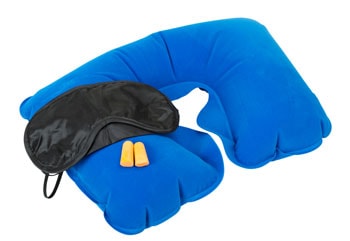
ZZZ-Hrk-ZZzzz-hngGGggh-Ppbhw – Dealing With the Snorers
The Problem
The popular view is that some stimuli like music or a damped light could help you sleep but the science is clear – we sleep best in absence of any stimuli (yes, even that fado playlist you have in the shortcuts on your laptop).
But I fall asleep in 10 minutes listening to that
That might be true but here’s the full story – although a soothing sound can calm your racing brain, making it easier to fall asleep, the stimuli will keep it active as it processes the sound. The result – you don’t get enough deep sleep.
We’re talking about damped sounds and music only to add a bit of drama to our actual point – what a snoring sound can do.
This one is especially important if you are embarking on an organized adventure or hike, whether it’s your local trail, Kilimanjaro or the Inca trail.
The Solution
Make sure your packing kit includes ear plugs. They cost as much as a Wendy’s burger and can salvage your trip if any snorers are around.
Final Thoughts
To make the most out of your adventure you’ll need the alertness to soak it all in. Otherwise it’s just walking or climbing.
Two nights of bad sleep and you won’t notice that Silver-spotted Skipper butterfly that just flew by. You’ll be just passing time waiting for the moment when you can lay down your tired body to that comfy mattress waiting at home.
In order not to bombard you with information and yet cover everything you need to think about, we’ll split the guide about getting a good night’s sleep into 2 parts.
In part 2, we’ll look into some pre-bed routines, clothes, food, drinks and some more gear tips.
Until then, sleep tight.
This post was brought to you by James, who reviews air mattresses at The Sleep Studies.

